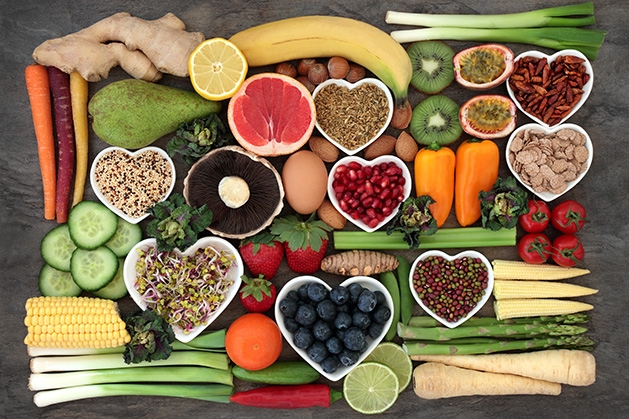
This article originally appeared as part of the story Healthy, Easy and Fast in the December 2019 issue.
If you’re really interested in getting your 2020 diet off to a better start, the U.S. Department of Health & Human Services also offers some simple and helpful tips. Here are a few of their ideas—you can find more at hhs.gov/fitness/eat-healthy/how-to-eat-healthy.
Emphasis on Fruits & Veggies
Mix vegetables into your go-to dishes. Try spinach with pasta or peppers in tacos.
Use fresh, frozen and canned fruits and vegetables. They all offer the same great nutrients. Just be sure to watch the sodium in canned vegetables and look for fruits packed in water or 100 percent juice (not syrup).
Healthy Snacks
For a handy snack, keep cut-up fruits and vegetables like carrots, peppers or orange slices in the refrigerator.
Teach children the difference between everyday snacks, such as fruits and veggies, and occasional snacks, such as cookies or other sweets.
Make water a staple of snack time. Try adding a slice of lemon, lime or a splash of 100 percent juice to your water for a little flavor.
Swap out your cookie jar for a basket filled with fresh fruit.
Ways to Reduce Fat, Salt and Sugar
Choose baked or grilled food instead of fried when you’re eating out and implement this at home, too.
Make water and fat-free or low-fat milk your go-to drinks instead of soda or sweetened beverages.
Serve fruits as everyday desserts—like baked apples and pears, or a fruit salad.
Read labels on packaged ingredients to find foods lower in sodium.
Skip adding salt when cooking; instead use herbs and spices to add flavor.









